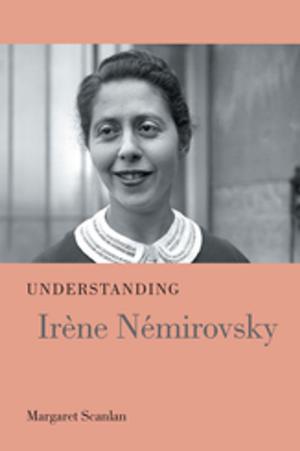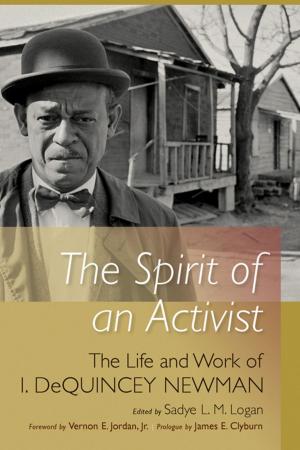| Author: | Olivia Carr Edenfield, Linda Wagner-Martin | ISBN: | 9781611177411 |
| Publisher: | University of South Carolina Press | Publication: | February 28, 2017 |
| Imprint: | University of South Carolina Press | Language: | English |
| Author: | Olivia Carr Edenfield, Linda Wagner-Martin |
| ISBN: | 9781611177411 |
| Publisher: | University of South Carolina Press |
| Publication: | February 28, 2017 |
| Imprint: | University of South Carolina Press |
| Language: | English |
Andre Dubus (1936–1999), the author of short stories, novellas, essays, and two novels, is perhaps best known as the author of the story “Killings,” which was adapted into the film In the Bedroom, a nominee for five Academy Awards in 2001. His work received many awards, including the PEN New England Award, the PEN Malamud Award, the Rea Award for the Short Story, and the Jean Stein Award. In Understanding Andre Dubus, Olivia Carr Edenfield focuses on the major influences that span Dubus’s canon—his Catholic upbringing, Marine Corps service, and turn to fiction at the University of Iowa Writers’ Workshop, as well as the influence that a life-threatening accident had on his work Edenfield traces how Dubus’s experiences serve as a backdrop for the major themes that run through his work: faith, family, and infidelity. His marriages, the complex relationships with his children, and his difficult recovery from a car accident exert a powerful influence on his work. Dubus also takes up the complicated themes of love and marriage, fatherhood and faith, and despair and spiritual healing; his subjects and style were influenced significantly by Ernest Hemingway After Dubus’s novel Broken Vessels was named a runner-up for the Pulitzer Prize in 1991, he returned to writing shortstories, the genre for which he is still renowned. He focused on a character much like himself who had to learn to navigate the world while afflicted with physical and spiritual disability. In 1996 he published his critically acclaimed short story cycle Dancing after Hours, an appropriate ending to a career that celebrated the healing power of the human heart.
Andre Dubus (1936–1999), the author of short stories, novellas, essays, and two novels, is perhaps best known as the author of the story “Killings,” which was adapted into the film In the Bedroom, a nominee for five Academy Awards in 2001. His work received many awards, including the PEN New England Award, the PEN Malamud Award, the Rea Award for the Short Story, and the Jean Stein Award. In Understanding Andre Dubus, Olivia Carr Edenfield focuses on the major influences that span Dubus’s canon—his Catholic upbringing, Marine Corps service, and turn to fiction at the University of Iowa Writers’ Workshop, as well as the influence that a life-threatening accident had on his work Edenfield traces how Dubus’s experiences serve as a backdrop for the major themes that run through his work: faith, family, and infidelity. His marriages, the complex relationships with his children, and his difficult recovery from a car accident exert a powerful influence on his work. Dubus also takes up the complicated themes of love and marriage, fatherhood and faith, and despair and spiritual healing; his subjects and style were influenced significantly by Ernest Hemingway After Dubus’s novel Broken Vessels was named a runner-up for the Pulitzer Prize in 1991, he returned to writing shortstories, the genre for which he is still renowned. He focused on a character much like himself who had to learn to navigate the world while afflicted with physical and spiritual disability. In 1996 he published his critically acclaimed short story cycle Dancing after Hours, an appropriate ending to a career that celebrated the healing power of the human heart.















